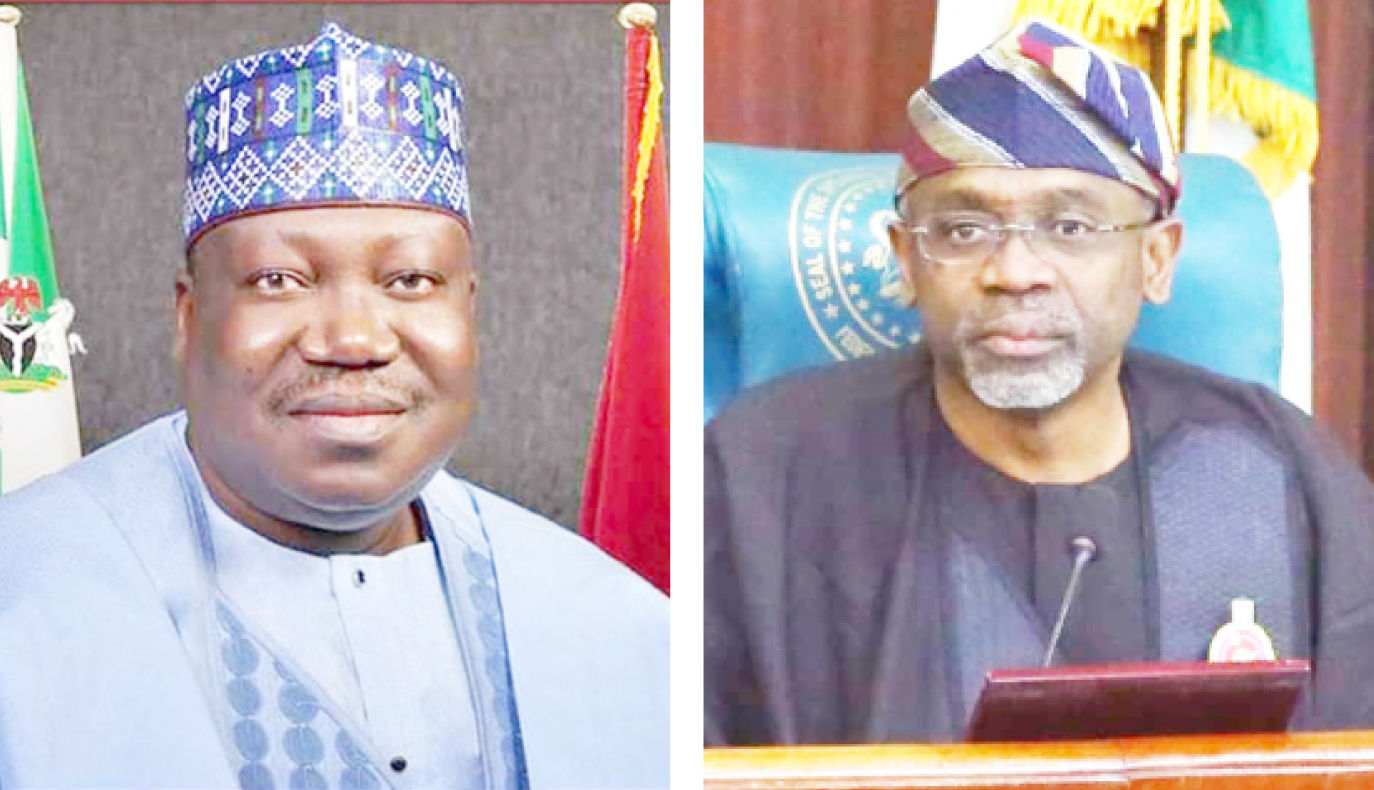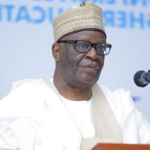Lawmakers must account for billions ‘wasted’ on exercise – Rafsanjani
- Review top on our priority this year – Lawan
Seven months after the two chambers of the National Assembly concluded zonal public hearings on the review of the 1999 Constitution, nothing serious seems to have happened towards ensuring its early passage, aimed at bequeathing a better constitution to the country, Daily Trust on Sunday reports.
The slow pace of the ongoing constitution review exercise is already raising concerns among Nigerians as to whether the exercise would again end in futility after gulping billions of taxpayers’ money as was the case in the previous attempts.
It would be recalled that successive lawmakers in the National Assembly spent billions of naira in efforts to review the 1999 constitution, but such exercises were never successful.
The two chambers of the National Assembly had in May 2021 separately held public hearings at the six geopolitical zones of the country to collect inputs from various stakeholders to articulate into the review of the constitution.
Daily Trust on Sunday reports that the Senate Ad-hoc Committee on Constitution Review, headed by the deputy president of the Senate, Ovie Omo-Agege, and that of the House of Representatives, headed by Deputy Speaker Idris Wase, had held public hearings in 12 cities – two each of the six geopolitical zones.
Shortly after the committees concluded the public hearing in May 2021, a senator who was a member of the committee said the collation of the aggregate views at the zonal hearings would be put together into a draft bill for presentation to the federal lawmakers by July 2021.
The outcome of the zonal public hearings, it was learnt, was to be put together by the committee members, with the assistance of consultants engaged for the exercise.
The senator outlined 16 areas he said would guide the committee while preparing its report.
Among the key areas, he said, included gender equality for women and girls; federal structure and power devolution; local government and its autonomy; public revenue; fiscal federalism and revenue allocation; Nigerian police and Nigerian security architecture; comprehensive judicial reforms; electoral reforms, socio-economic and cultural rights as contained in chapter 2 of the constitution.
He listed other areas as strengthening the independence of oversight institutions and agencies created by the constitution or pursuant to an act of the National Assembly, residency and indigene provisions, immunity, National Assembly and state and local government creation; FCT administration, the legislature and legislative bureaucracy and constitutional role for traditional rulers.
The senator was optimistic then that the committee’s report would be ready for clause-by-clause consideration by the Senate at plenary before proceeding on its annual vacation way back in July 2021.
However, that did not happen until the lawmakers proceeded on their long vacation in July last year.
The parliament equally did not take any significant action on the constitution review process after it resumed from its long break in July 2021 down to the period the lawmakers proceeded on their end of the year holidays late December last year.
However, there are concerns among Nigerians on the delay in the constitution amendment process, even as they urged the National Assembly to expedite action to ensure that the process is concluded to avoid another waste of public funds.
The worries stem from the fact that starting from this year, the lawmakers will have more distractions ahead of the 2023 general elections and may not have more time to push the amendment through.
This is more so that the constitutional amendment exercise is usually cumbersome and goes through a lot of rigorous processes, which could drag for a long time; hence, the earlier, the better chances of concluding it.
Normally, after the collation of the reports of the public hearings comes the presentation of report, as well as clause-by-clause consideration by both the Senate and the House of Representatives, after which the clauses that get through will be harmonised and sent to the 36 state houses of assembly for voting.
It is expected that two-third of the Houses of Assembly, which is 24 states, must concur with the position of the National Assembly on the approved clauses, after which the bill will come back to the National Assembly for an onward transmission to the president for assent.
In view of the foregoing, there are concerns that the slow pace at which the lawmakers are going with the exercise may jeopardise the expected success of the process.
Lawmakers must account for billions ‘wasted’ on exercise – Rafsanjani
Speaking on the matter, the executive director, Civil Society Legislative Advocacy Centre (CISLAC), Musa Auwal Rafsanjani, said it was sad that attempts to amend the 1999 constitution by successive members of the National Assembly in the last 20 years had been a mirage, after gulping billions of naira of taxpayers’ money.
He criticised the leadership of the 9th National Assembly for not being “pushful” enough in ensuring early conclusion of the process.
“Senate President Ahmad Lawan has been in the National Assembly since 1999 and knows very well how much taxpayers’ money has been wasted, yet he is not bothered to ensure that the constitutional review is brought to a conclusion.
“He was the Senate leader in the last Assembly and had the enormous influence to redirect the affairs of the Senate. And now, he is the Senate president, but he does not seem to be concerned or pushful to provide leadership to ensure that the constitution review happens.
“Also, this tells you the insensitivity of the people who are wasting taxpayers’ money when the economy is shrinking. Poverty is on the increase and they are not worried about saving cost for the country.
“If this National Assembly goes without concluding the constitution amendment, it is very clear that politicians care less in terms of how taxpayers’ money is utilised in the country,” Rafsanjani said.
He said if the exercise failed, it would not only be a waste of taxpayers’ money but also a waste of time and intellectual contributions.
“And we would have lost the big opportunity to resolve the contentious issues with the 1999 constitution, which continue to linger and create development deficit and escalate violence in Nigeria.
“If their responsibility is to make laws for good governance and they have the opportunity to amend the constitution to ensure that those conflict areas are addressed but they are not proactively working towards that, then it would be a very huge lost opportunity for the country,” he added.
He said it was time Nigerians began to hold those who are supposed to carry out the exercise to account.
“They should hold them accountable for wasting taxpayers’ money, wasting the intellect, the time of Nigerians that have been used to provide useful suggestions and advice on how to amend the constitution.
“How do you explain spending billions from 1999 till date on the so-called constitution amendment and you are not amending anything? There’s no justification whatsoever from 1999 till date to have wasted such public money that should have been utilised for addressing the development deficit in Nigeria, including poverty.
“Nobody has so far provided an account on what has been spent on constitution amendment and how it was spent. It is because of this impunity in public accounts that they don’t care about concluding the constitution review process. We in the civil society will continue to hold them to account because they spent public money without results,” he further said.
It’ll be our priority this year – Lawan
In a remark shortly before the Red Chamber adjourned plenary for Christmas and New Year break, Senate President Lawan said the lawmakers would consider the report of the Committee on the Review of the 1999 Constitution as soon as it is presented this year.
“When we return (in January 2022), we have one major legislation that has not been attended to; that is the constitution amendment.
“Our Committee on the Review of the 1999 Constitution has been doing its work. But as a chamber, we haven’t finished working on it.
“We are expectant that the committee would be presenting its report to this chamber as soon as we resume. The report is almost ready.
“When we harmonise with our colleagues in the House we should be able to vote on the issues that would particularly bring about peace, unity and good government in our country before such a bill would be sent to the houses of assembly in the states for concurrence,” he said.
Also, Deputy Senate President Omo-Agege, in his New Year message, stated, “Another issue that would top our agenda upon resumption from the Christmas break is the presentation and consideration of the report of the committee, which I chair.
But when contacted, the chairman of the Constitution Review Committee in the House of Representatives and Deputy Speaker Idris Wase, attributed the delay to the concentration on the electoral amendment bill, the petroleum industry act and the 2022 appropriation bill.
Wase, who spoke through his chief press secretary, Umar Muhammad Puma, said the constitution review process would receive more attention when the House resumes from its Christmas and New Year break in January 2022.
He said the House was committed to the passage of the constitution amendment bill, adding that the committee had been collating submissions by stakeholders at the zonal public hearing earlier held in May 2021.

 Join Daily Trust WhatsApp Community For Quick Access To News and Happenings Around You.
Join Daily Trust WhatsApp Community For Quick Access To News and Happenings Around You.


